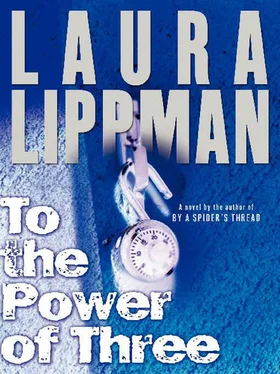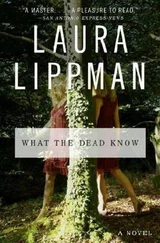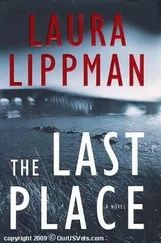“Being shot,” Josie supplied.
“No,” Perri said. “That’s instant, so it becomes the easy choice. We need a list of things that are painful and scary.”
“You die instantly in a plane crash.”
“No you don’t,” Perri said. “That’s why people get money when they sue the airlines. For suffering.”
“How do you sue if you’re dead?” Kat asked.
“Not the dead people. Their families. Okay-so being smothered. A fire. Plane crash. We need one more.”
“Need?” Kat asked.
“Our statistics project. Oh, that’s right, you weren’t there on the first day when Mr. Treff explained it. We have to conduct a survey, then chart our results, along with demo…demo…demographics on our survey sample. It’s a poll, like the ones they do during elections, but we can ask anything we want. Mr. Treff said.”
“Drowning,” Josie said.
“What?”
“Death by drowning. That should be the last one.”
“That’s awfully like suffocation,” Perri objected.
“Well, burning up and dying in a plane crash are alike, too.”
“That’s okay,” Kat said. “For things to be alike. After all, the idea is to find out what people pick . Maybe it would be interesting to see if certain people pick drowning while other people pick suffocation.”
They bent their heads together, pleased with themselves. Although no one made the point out loud, Josie knew they were all thinking the same thing: This was a way to get noticed, to make their mark in the new school. Other students would ask boring questions about television shows and desserts. Only they would investigate death.
And so the very next afternoon, a full week before the assignment was due, they set out, notebooks in hand, and began to canvass the neighborhood. The kids they met-school peers, high-school students, younger kids-were happy to answer their questions. (“That is sick, ” said an older boy who was hanging out with Perri’s brother, Dwight, a high-school senior. But he clearly meant it in a good way.) Mothers and baby-sitters, however, frowned and told them not to ask such questions.
“It’s our homework,” Perri replied. “It’s for school. We have to do it.”
By Saturday they had polled forty people, but Perri was not pleased with the results. For one thing, far too many people were picking drowning, with plane crashes a distant second. Perri, however, claimed she was more disturbed by what she called demographics.
“We’re doing okay on age, but we don’t have enough over-eighteen men.”
“We have our fathers,” Josie said. Her own father had loved the assignment, if only because he liked to see Josie get excited about anything mathematical.
“That’s all we have. And they all picked drowning.”
“Do you want to go out in the neighborhood and see if there are fathers around?”
“We could, but it’s so inefficient. We need to go to a mall or someplace where there are a lot of men.”
“My mom would take us to the mall,” Kat said.
“Men at malls would all pick drowning,” Perri said. “Just like our fathers. We need to find a wider sample.”
“We’re not supposed to worry about the results,” Josie said. She suspected that Perri disliked the “drowning” responses because the choice had been Josie’s contribution to the poll. “That’s why we vary the order of the possible answers, to control for people picking the first or last thing automatically.”
“Still,” Perri said, “it’s a very narrow sample, just people we know.”
“How are we supposed to talk to people we don’t know?” Kat asked.
“That’s my idea. Let’s get our bikes and meet at Kat’s house on Saturday.”
Glendale had bike paths that connected its various developments, and now that they were in middle school, the girls had been given wide latitude to travel these routes. Still, Old Town Road was forbidden territory, so Josie was shocked when Perri led them to the edge of that busy two-lane strip, almost a highway in its own right.
“We’re not supposed to go on Old Town Road.”
“We won’t,” Perri said, turning right on the shoulder. Josie and Kat had no choice but to follow. Perri was right, they weren’t exactly on the road, although Josie suspected their parents would not be impressed by this technical compliance with the rule. They rode about a mile, passing a feed store and a tractor dealership, until Perri came to a stop at last in a gravel parking lot outside a windowless concrete building labeled, simply, Dubby’s.
“We can’t go in a bar, ” Kat said.
“Sure we can. My dad brings me here for mozzarella sticks and cheeseburgers. We can’t sit at the bar, but we can go into the restaurant part.”
The air inside was smoky, the smokiest air Josie had ever smelled, and there were other smells beneath it, mysterious and unknown. The girls blinked rapidly, their eyes adjusting to the gloom. Suddenly a woman flew at them out of the darkness, like one of those shrieking bird persons they had studied in their mythology unit in fifth grade.
“Little girls can’t come in here by themselves. What are you thinking?”
Josie and Kat shrank back, happy for an excuse to flee. But Perri didn’t seem the least bit intimidated. “We’re here on a school project. We would like to quiz your customers for an exercise in polling.”
A man at the bar-an enormous man, with a belly that came so far down his legs that it appeared to rest on his knees-turned to inspect them with interest.
“My customers don’t come here to talk politics.”
“This isn’t about politics,” Perri said. “It’s a survey on how one would like to die.”
The man frowned, then started to laugh, and Josie wasn’t sure which reaction scared her more. He was a white man, but with skin so tanned that he was darker than Josie’s father. He had dark hair sprouting from his ears, broken yellow teeth, and truly terrifying eyebrows, scraggly and wild.
“Next commercial,” he said, waving a huge, puffy hand toward a television tuned to a baseball game. “But that’s it. Then you’re out of here.”
They agreed, interviewing all seven patrons as soon as the beer commercials began. The men did not appear happy about answering the questions, but when they glanced at the man who had given the girls permission, they reluctantly went through with it. One especially mean-looking man studied them for a long time before he answered their questions.
“Do you know my daughter?” he asked. “Eve Muhly?”
“She’s a year behind us,” Perri said. “We knew her back in elementary school.” She made this sound as if it were a long, long time ago.
“Is she a good girl?”
The only thing to say to such a question from an adult was yes. Even if another kid was hateful to you, it was wrong to tell an adult. And back then Eve was pretty well behaved in the way that parents cared about, if smellier than ever. No one remembered the story that Perri made up about her back in third grade, but Eve was still famous for smelling, and picking her nose. For being, in general, a mess.
“She’s okay,” Perri said.
“What does that mean? Is she good or is she not?” The man’s voice rose, and Josie thought, I’d be so scared if he were my father .
“She’s good,” Perri said hastily. “Very good.”
“What’s your name?”
“Perri.”
“Isn’t that a boy’s name?”
“No, there’s a writer my mom likes. I was named for her.”
“Are you friends with my girl?”
“N-n-not really.”
“Why not?”
Perri was speechless, something Josie had never seen, and Kat stepped in. “We’re not not friends with her. She’s in a different class from us. But she plays with Binnie Snyder sometimes.”
Читать дальше












